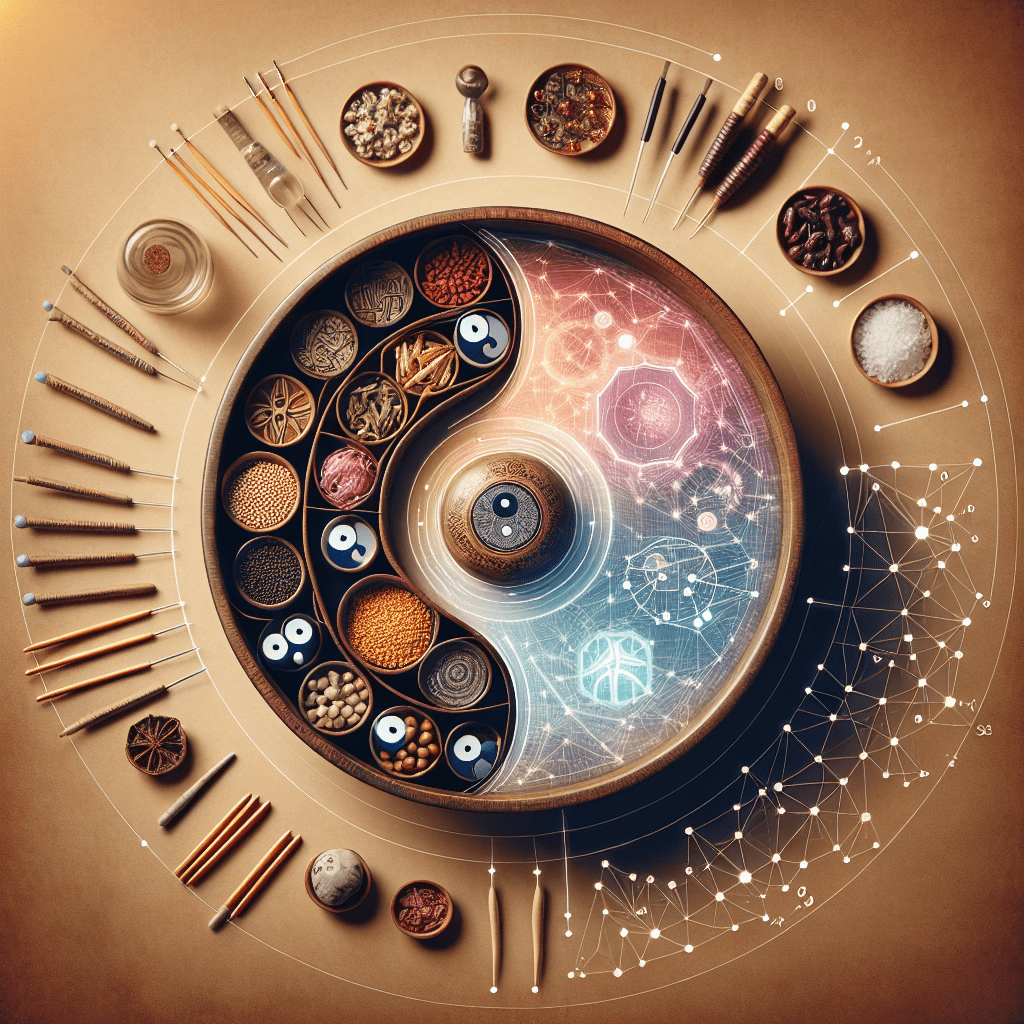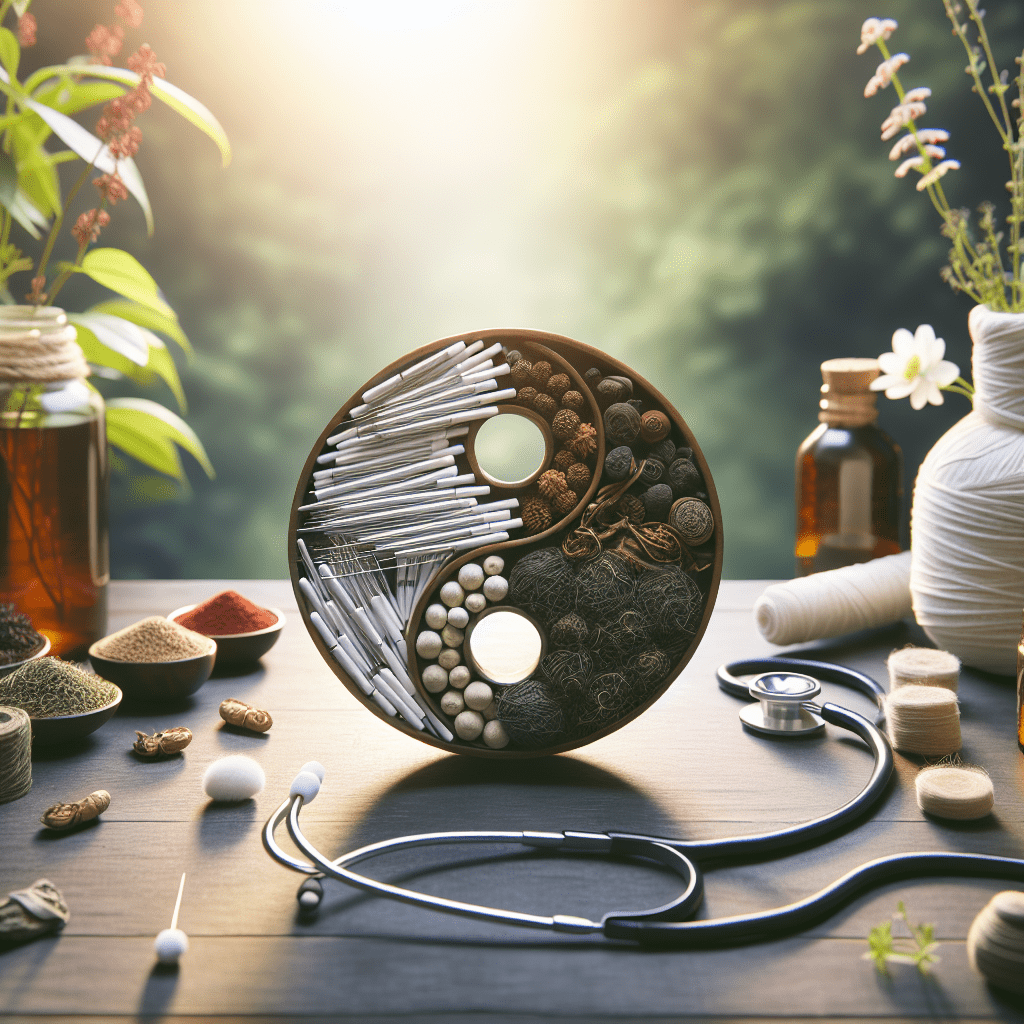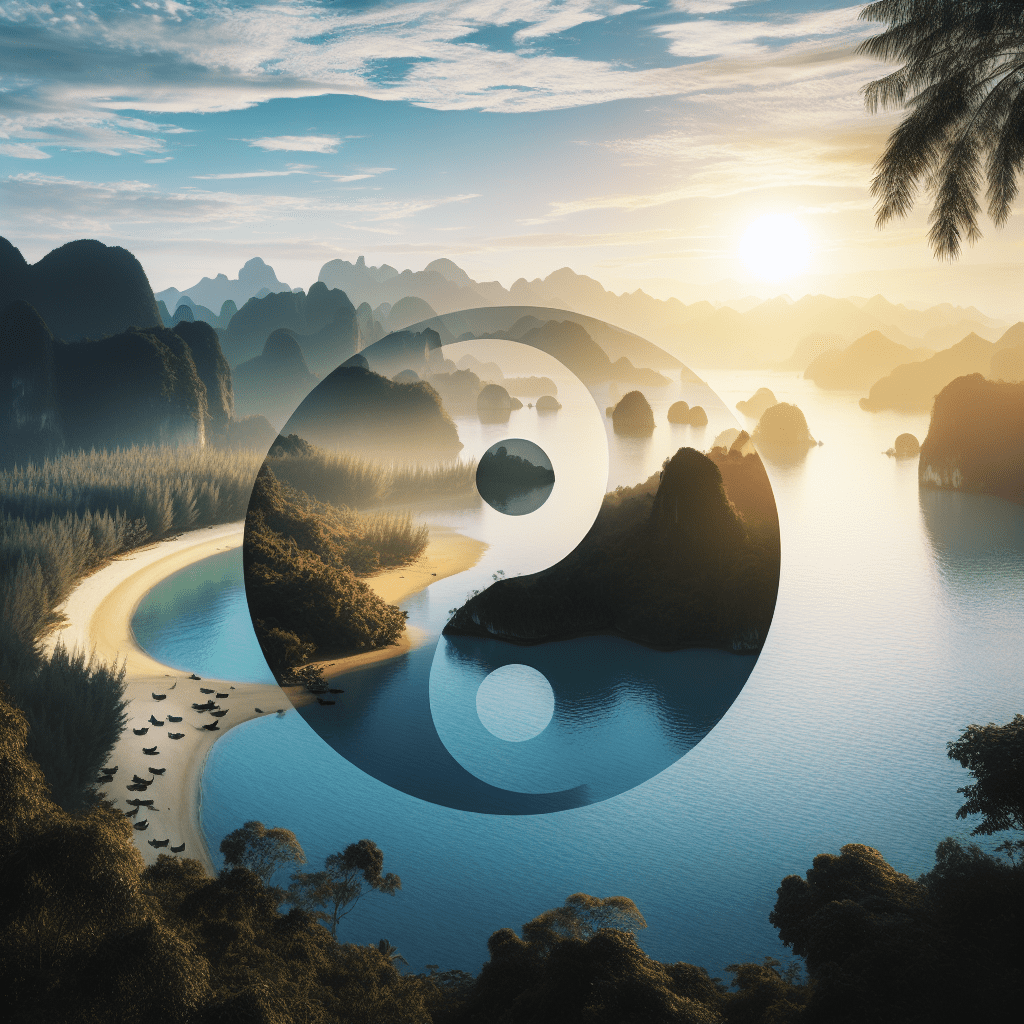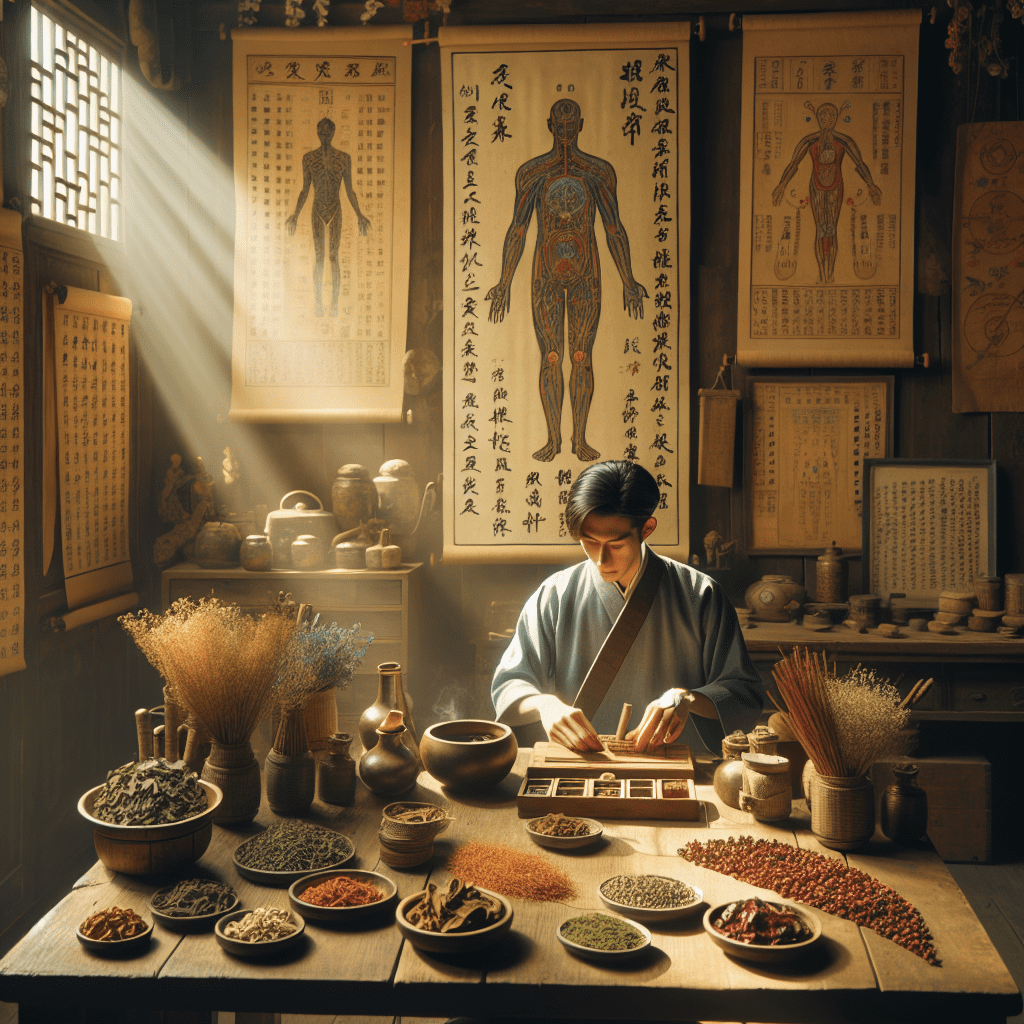In a world dominated by quick fixes and modern medical marvels, there’s a growing yearning for something deeper—a more intuitive and holistic approach to wellness that treats more than just symptoms. This is where Traditional Chinese Medicine (TCM) shines, offering a treasure trove of ancient wisdom that’s surprisingly relevant to our contemporary health challenges. Dating back over 2,500 years, TCM isn’t just a relic of the past; it’s a living, breathing system that continues to guide millions toward balanced health.
What makes TCM so appealing today? Perhaps it’s the way it views health not as the mere absence of disease, but as a harmonious state of being. Or maybe it’s how it treats each person as a unique individual rather than a collection of symptoms. For those of us tired of one-size-fits-all health solutions, TCM offers a refreshingly personalized path—one that sees your body’s patterns and responses as meaningful signals rather than inconvenient disruptions.
The Foundation: Understanding TCM’s Core Principles

At the heart of Traditional Chinese Medicine lies a set of elegant concepts that explain how our bodies function in harmony with the natural world. These aren’t mystical ideas but practical frameworks for understanding health and wellness.
Qi (pronounced “chee”) is perhaps the most fundamental concept in TCM. Often translated as “vital energy,” Qi flows through pathways called meridians, energizing and nourishing every part of your body. When Qi flows smoothly, health flourishes; when it becomes blocked or imbalanced, symptoms appear. Think of it like electricity in your home—when it flows properly, everything works; when it’s disrupted, problems arise. Qi balancing techniques are essential for maintaining this vital energy flow.
“In Traditional Chinese Medicine, we see Qi as the body’s animating force,” explains Dr. Lin Wei, a TCM practitioner with over 30 years of experience. “It’s what allows your heart to beat, your lungs to breathe, and your mind to think. Modern science may describe these processes differently, but the concept of energy flowing through the body remains powerfully relevant.”
The interplay of Yin and Yang represents another cornerstone of TCM wisdom. These complementary forces—one cooling, nourishing, and inward (Yin), the other warming, energizing, and outward (Yang)—must remain in balance for optimal health. When you feel exhausted yet wired at night, that’s a Yin-Yang imbalance. When you experience hot flashes followed by chills, that’s Yin and Yang out of harmony.
Completing the theoretical framework is the Five Elements Theory, which categorizes all phenomena into Wood, Fire, Earth, Metal, and Water. Each element corresponds to specific organs, emotions, seasons, and life stages. For example, the Wood element relates to the liver and gallbladder, the emotion of anger, springtime, and the growth phase of life. This elegant system helps practitioners understand how different aspects of health interconnect.
These principles aren’t just philosophical concepts—they’re practical tools for understanding your unique constitution and health patterns. By seeing yourself through this lens, you gain insights into why certain foods energize you while others deplete you, or why specific emotional patterns tend to manifest as physical symptoms in your body.
Beyond Symptoms: TCM’s Unique Diagnostic Approach
“The superior physician treats before illness manifests. The mediocre physician treats illness just beginning to manifest. The inferior physician treats only once illness is fully manifest.”
One of the most fascinating aspects of Traditional Chinese Medicine is its diagnostic methods, which offer a window into your health status that blood tests and imaging can’t always provide. Rather than focusing solely on the presence or absence of disease, TCM practitioners look at patterns of disharmony that may exist long before a Western diagnosis would be possible.
The four examinations—looking, listening/smelling, asking, and touching—provide a comprehensive picture of your health status. A skilled TCM practitioner observes the color and coating of your tongue, the sound of your voice, the quality of your skin, and the strength and rhythm of your pulse at different positions. These observations reveal the state of your internal organs and energy balance with remarkable accuracy.
For example, a pale tongue with teeth marks along the edges might indicate digestive weakness and Qi deficiency, while a rapid, thin pulse could suggest heat or inflammation in the body. These subtle signs allow for early intervention, often before major health issues develop.
Sarah Johnson, a 42-year-old marketing executive, shares her experience: “For years, I had unexplained digestive issues and fatigue that my regular doctor couldn’t diagnose. Blood tests came back normal, but I knew something wasn’t right. During my first TCM consultation, the practitioner spent nearly an hour examining my tongue, pulse, and asking detailed questions about my lifestyle. She identified a pattern of ‘Spleen Qi deficiency with Dampness’ that perfectly described my symptoms. Following her herbal and dietary recommendations made a difference within weeks.”
This approach to diagnosis reflects TCM’s fundamental perspective: health problems don’t appear randomly but follow patterns that can be recognized and addressed by restoring balance to the body’s systems. This concept of wellness balance is central to TCM’s diagnostic approach.
Healing Modalities: TCM’s Therapeutic Treasures

Traditional Chinese Medicine offers a diverse range of healing practices, each with unique benefits yet all working toward the same goal: restoring balance and promoting the smooth flow of Qi throughout the body.
Herbal Medicine: Nature’s Pharmacy
Chinese herbal medicine stands as one of TCM’s most sophisticated therapeutic systems. Unlike Western approaches that often isolate single compounds, Chinese formulas typically combine 4-15 herbs strategically selected to work in harmony. These formulas are carefully balanced to maximize therapeutic effects while minimizing side effects.
For instance, a classic formula like Liu Wei Di Huang Wan (Six-Ingredient Pill with Rehmannia) has been used for centuries to nourish Yin deficiency, which might manifest as night sweats, dizziness, and lower back pain. Modern research has found this formula contains compounds that support kidney function, regulate hormones, and provide antioxidant benefits.
“What makes Chinese herbal medicine so remarkable is its precision,” notes herbalist Grace Chen. “We don’t just prescribe ginseng for everyone with fatigue. Instead, we determine whether your fatigue stems from Qi deficiency, Blood deficiency, Yin deficiency, or another pattern, then select specific herbs that address your unique imbalance.”
Acupuncture: Balancing Energy Pathways
Perhaps the most recognized TCM therapy, acupuncture involves the insertion of ultra-thin needles at specific points along the body’s meridians to regulate Qi flow. Far from being a placebo, acupuncture’s effectiveness has been documented in thousands of clinical studies for conditions ranging from chronic pain and migraines to anxiety and infertility. Research from Yo San University provides further insights into how these interventions affect Qi energy.
A 2018 study published in The Journal of Pain found acupuncture provided significant relief for chronic pain patients, with benefits lasting at least 12 months after treatment. The research indicated acupuncture’s effects couldn’t be explained by placebo alone, suggesting real physiological changes were occurring.
Mark Davis, a 56-year-old construction worker, found relief through acupuncture after years of back pain: “After my injury, I tried everything—surgery, physical therapy, pain medications. Nothing provided lasting relief. Acupuncture was my last resort, and honestly, I was skeptical. But after six sessions, I experienced more improvement than I had in five years of conventional treatment. I still go monthly for maintenance, and it keeps me functioning without pain pills.”
Tuina: Therapeutic Massage with Purpose
Tuina combines massage, acupressure, and manipulation techniques to address musculoskeletal issues and internal imbalances. Unlike relaxation massage, Tuina follows TCM principles, working specifically with meridians and acupoints to restore proper Qi and Blood flow.
This therapeutic approach can be particularly effective for conditions like neck pain, shoulder tension, and sports injuries, often providing immediate relief while supporting long-term healing. The techniques range from gentle pressing and kneading to more vigorous rolling and tapping, all tailored to the individual’s condition and constitution.
Tai Chi and Qigong: Moving Meditation for Health
These mind-body practices represent TCM’s approach to exercise, focusing on the integration of gentle movement, breath control, and mental focus. Regular practice has been shown to improve balance, flexibility, and cardiovascular health while reducing stress and enhancing immune function. Balance yoga incorporates many of these principles for energy restoration.
A 2018 review in the Journal of Sport and Health Science found Tai Chi effective for improving quality of life and reducing depression symptoms in older adults. Meanwhile, a Harvard Medical School study documented Tai Chi’s benefits for patients with Parkinson’s disease, improving balance and reducing fall risk.
These movement practices exemplify TCM’s emphasis on prevention and self-care, giving practitioners tools to maintain their own health daily.
Treating the Whole Person: TCM’s Holistic Vision
💡 TCM Insight:
The mind-body connection in TCM isn’t just philosophical—it’s practical. Your emotions are seen as energy that, when blocked or imbalanced, can manifest as physical symptoms. Similarly, physical imbalances can affect your emotional state.
Perhaps the most revolutionary aspect of Traditional Chinese Medicine is its refusal to separate physical, emotional, and spiritual health. In the TCM worldview, these dimensions are inseparable—each influencing and reflecting the others.
This holistic approach recognizes that chronic anger may damage liver function, while grief can weaken the lungs. Conversely, physical imbalances can influence emotional states—a concept increasingly supported by modern research on the gut-brain connection and psychoneuroimmunology.
This perspective aligns perfectly with HerbalsZen’s philosophy of treating the whole person rather than isolated symptoms. Through EASTCHI AI, HerbalsZen brings this ancient wisdom into the digital age, using artificial intelligence to analyze individual patterns and provide personalized recommendations based on TCM principles.
Dr. James Wong, integrative medicine specialist, explains: “What makes TCM so valuable in our modern healthcare landscape is its ability to see connections between seemingly unrelated symptoms. The patient with insomnia, digestive issues, and anxiety isn’t dealing with three separate problems in the TCM view—these are connected manifestations of an underlying pattern of disharmony.”
This holistic vision extends beyond the individual to encompass our relationship with the natural world. TCM recognizes humans as microcosms of the larger universe, affected by seasonal changes, environmental factors, and cosmic rhythms. This perspective encourages living in harmony with nature’s cycles—eating seasonally, adjusting activities to match the energy of different times of year, and finding our place within the natural order. This connection to natural cycles is a reminder that health doesn’t exist in isolation but is part of our broader relationship with the world around us.
A Global Renaissance: TCM’s Growing Influence
Traditional Chinese Medicine is experiencing a worldwide resurgence, with the WHO formally recognizing TCM in its influential International Classification of Diseases in 2019. Major research institutions from Harvard to Beijing are conducting rigorous studies on TCM therapies, while integrative medical centers increasingly incorporate acupuncture and Chinese herbal medicine alongside conventional treatments. WHO’s global report provides comprehensive data on traditional medicine practices worldwide.
This growing acceptance reflects both consumer demand for more holistic options and mounting scientific evidence supporting many TCM approaches. A 2022 market analysis found the global TCM market valued at $44.5 billion, with projected annual growth of 8.2% through 2030.
The appeal crosses cultural boundaries because TCM addresses universal human experiences and health challenges. Its emphasis on balance, prevention, and personalized care resonates with contemporary health concerns, offering solutions that complement Western medicine’s strengths while addressing some of its limitations.
Your Journey with TCM: Ancient Wisdom for Modern Wellness
Ready to Explore TCM’s Benefits?
Discover how these ancient practices can complement your modern wellness journey and provide personalized solutions for your unique health profile.
As you consider incorporating Traditional Chinese Medicine into your health journey, remember that this ancient system offers more than just alternative treatments—it provides a different lens through which to understand your body and its needs.
Start by exploring how TCM’s principles might apply to your current health situation. Are you constantly tired despite adequate sleep? Do you experience digestive issues that worsen under stress? These patterns make perfect sense within TCM’s framework and can point toward specific imbalances that need addressing.
Resources like HerbalsZen with its innovative EASTCHI AI platform offer accessible entry points to this rich tradition, combining ancient wisdom with modern technology to create personalized recommendations based on your unique constitution and current health status. Chinese food therapy is one example of how TCM principles can be applied to daily life.
Whether you’re seeking solutions for specific health challenges or simply wanting to optimize your wellness, Traditional Chinese Medicine offers time-tested wisdom that treats you as a whole person—body, mind, and spirit interconnected. In our fragmented healthcare landscape, this integrated approach might be exactly what your health journey needs.
The wisdom that sustained generations for thousands of years hasn’t lost its relevance—it’s simply waiting to be rediscovered by those seeking a more balanced, natural path to health. As TCM reminds us, true healing doesn’t come from outside but emerges when we restore harmony to our inner landscape and align ourselves with the natural world around us.




